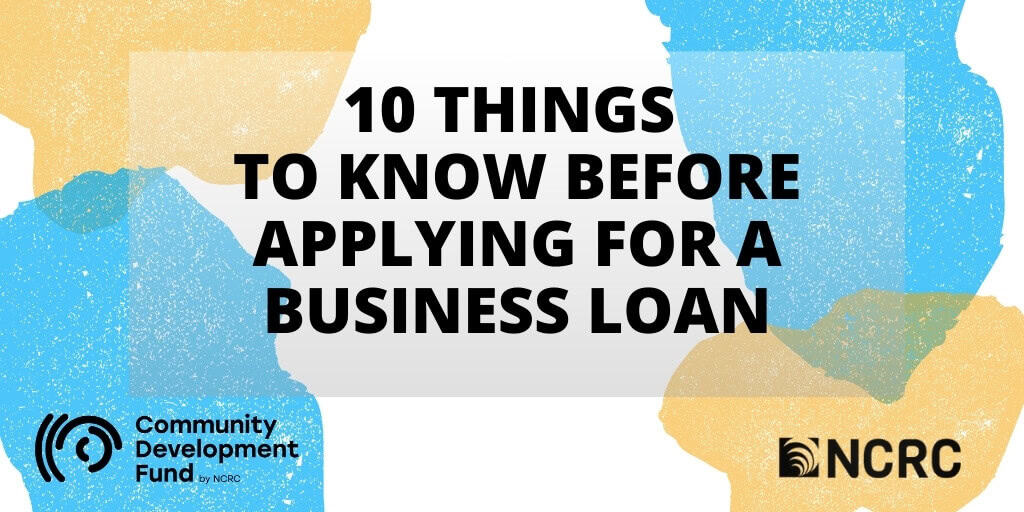As you are thinking about applying for a business loan, whether as a startup or an existing business owner with years of experience running a business, it is important to consider and review the following steps prior to submitting your application to maximize your chances of success in securing capital for your business.
1. Understand Your Business Needs and Goals
Before applying for a loan, it is important to assess why you need a loan and for what purpose and goal. For example, would it be used to purchase equipment, expand operations, buy inventory, manage cash flow or open a physical location? These are a few of the many reasons why a business might decide to take on debt. As you are in the reflection phase, it is advisable to have a clear purpose since it will help you determine what type of loan you will need and how much you should request from a lender.
2. Know Your Credit Score
Both personal and business credit scores play such a significant role in the loan application process, as this is often used to assess creditworthiness and repayment ability. Traditional banks typically require a higher score than non-traditional financial institutions who cater to underserved populations, such as a Community Development Financial Institution (CDFI). It is important to check your score to determine your credit eligibility prior to reaching out to a lender for a loan. In the event that you need to further improve your credit, it is recommended to begin lowering your debts, keep credit card utilization at or below 30% and fix issues by filing disputes (if applicable) with the credit bureaus such as TransUnion, Equifax and Experian.
3. Explore and Determine the Type of Loan
It is essential to research the various loan options and understand their differences so you are able to choose the best option that suits your business needs. Below are just a few of many options.
- Term Loans: Fixed funds with set repayment deadlines. These are typically ideal for purchasing equipment, vehicles, construction, etc.
- Lines of Credit: Flexible funding option that allow you to borrow as needed up to a certain limit. Typically used for working capital.
- SBA Loans: Government-backed loans with favorable terms for small businesses. Typically used for refinancing, real estate improvement, etc.
- Equipment Financing: Loans made specifically for purchasing business equipment.
- Invoice Financing: Loans made against outstanding invoices.
4. Assess Business Financial Health
It is vital to keep your financial documents in order and understand the financial positioning of your business prior to undertaking debt. This includes understanding your financial statement, cash flow and profit margin so that you can have a more seamless application process and also ensure you will have no issues repaying the loan. For assistance with analyzing your business financial health, contact your local Certified Public Accountant (CPA) or financial advisor.
5. Determine Loan Amount Needed
After analyzing your business finances, identify areas that require funding and determine how much money you need. Make sure you anticipate and plan for future unexpected additional financial demands. Lastly, do not forget to consider your repayment ability by calculating your Debt Service Coverage Ratio (DSCR) which measures cash flow or operating income available to pay debt obligations. A DSCR of 1 or above indicates positive business cash flow while a DSCR lower than 1 typically indicates the business has lower operating income to repay debt.
6. Compare and Shop for Loans
Given that different loans have varying eligibility requirements, interest rates, terms and potential fees associated with them, it is important to make sure you figure out what financing option best caters to your business specific need. Avoid predatory lenders, especially those that offer fast loans with abnormally high interest rates.
7. Schedule a Conversation with a Prospective Lender
Prepare a set of essential questions to ask your prospective lender of choice. These questions should aim to improve your understanding of the loan’s terms and conditions, interest rates, fees, penalties and other bank requirements and obligations.
8. Prepare Loan Application Documents
Each lender will have specific document requirements. However generally, the following are requested.
- Proof of Business Ownership
- EIN, Business licenses, and articles of incorporation
- Clear and detailed business plan
- Tax returns (Business and/or Personal)
- Bank Statements (Business and/or Personal)
- Financial Statements or projections
- Balance sheets, Income statements, and Cash Flow statements
- Collateral documentation (if required)
- This might include property tax assessments, accounts receivable reports, and furniture, fixtures, and equipment (FF&E) lists.
You can improve your application process by preparing these documents in advance. A common pitfall that leads to loan rejection is submitting a partial application, untimely submissions and providing financial documentation that reflect inaccurate information.
9. Re-affirm Borrowing Decision
After assessing your need for additional capital, identifying the specific type of loan that matches your business goal, developing a repayment strategy and having contingencies in place in case of unexpected hardships, make sure you feel comfortable with the idea of taking on debt. The loan should ideally position your business in a much better state for increased revenue than the status quo.
10. Seek Advice
It is always advisable to seek advice from a financial professional or a business counselor. Unlike most traditional financial institutions, CDFIs typically do provide counseling to businesses seeking loans. At the NCRC Community Development Fund, we provide small business loans and free workshops, group sessions, one-on-one counseling, and access to financial resources to empower business owners with the knowledge, tools, and skills to succeed.
For more information, please visit https://www.communitydevelopmentfund.org/.



